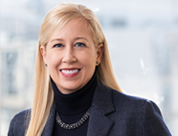Board Oversight in the Age of COVID-19
Part 1 of a weekly series detailing approaches that Independent Board Members are utilizing to address Coronavirus-related matters and highlighting emerging issues.
As veterans of the asset management industry — having experienced the 2008 financial crisis and the market disruption following 9/11 — coronavirus is similar to a movie we have seen before, but with an ending that is far from clear. Despite this uncertainty, the role of fund Independent Board Members remains essentially the same: to gather information, ask appropriate questions, oversee fund service providers, and exercise your reasonable business judgment to take appropriate action when needed to protect the interests of the funds you oversee and their shareholders.
We at Vedder Price have been working with the many boards we represent to implement a range of approaches to managing Independent Board Members’ oversight responsibilities as the current crisis unfolds. We want to share some of these approaches with you, and to that end, we will have a weekly update with insights on board practices. We also will highlight emerging issues that may become matters for board attention during this challenging period. As an additional resource, we include a link to our Coronavirus Task Force website where we have collected Client Alerts prepared by Vedder Price subject matter experts that address issues stemming from the current pandemic, including matters facing other asset management industry participants.
What Are Boards Doing Now?
Communication – Keeping Abreast of Developments
Boards are sensitive to the fact that management is focused on reacting to an environment that is impacting its workforce and challenging its fundamental business operations, including those related to mutual funds, closed-end funds and ETFs. A board can be supportive while still taking steps to monitor the situation and provide appropriate oversight. What are we seeing boards do
- Convene an informational call with management, including portfolio management personnel, to hear about company operations and any experienced or anticipated challenges
- Determine whether and with what frequency informal board calls or status reports may be appropriate or necessary based on current market conditions and the specific types of funds overseen
- Establish weekly “check-ins” by the board chair and committee chairs with their fund management contacts
- Plan periodic communications with the fund chief compliance officer, to monitor for any stress with respect to compliance policies and procedures
- Work with fund management to establish triggers for a call to discuss valuation or liquidity issues
- Confer on the need to revise prospectus risk disclosure to more clearly state the risks related to a pandemic situation or the uncertainty that a prolonged period of market volatility may present
- Lean on the board’s independent legal counsel as a resource to help the board navigate through this challenging time or to streamline communications with management
Board Meetings
Most boards have suspended in-person meetings in reliance on the recent order from the Securities and Exchange Commission. So what are we seeing boards do now with respect to scheduled meetings?
- Determine if interim board meetings are necessary or whether periodic informal briefings will suffice under the circumstances to bridge the gap until the next formal meeting
- Defer regular meeting agenda items to increase the efficiency of telephonic/video board meetings, while implementing controls to track deferred items that will require ratification at the board’s next in-person board meeting
- Consider how best to deliver board materials to Independent Board Members on boards without access to electronic portals
What’s Next – Emerging Issues
This crisis is still evolving and its impacts are uncertain. Below we highlight issues beyond those currently in the forefront (e.g., asset flows, redemption levels, sources of liquidity to fund redemptions, adviser business continuity planning and financial strength, etc.) that may evolve into matters for board consideration in the coming weeks, including those related to the following topics:
- Emerging Markets. As other countries consider responses to the virus, the potential for securities market closures or limits on trading, including prohibiting short-selling, may impact the trading and pricing of non-U.S.-issued depository receipts.
- Liquidity Risk Management Programs. Liquidity thresholds, security classifications and the evaluation of reasonably anticipated trading sizes may be challenged under stressed market conditions. The overly conservative liquidity thresholds and tolerances initially included in some fund procedures are under further consideration as funds edge closer to liquidity limits. Note that the Liquidity Rule requires notifications to the board when certain thresholds are breached.
- Fair Value Pricing. Trading in fixed income markets is under stress, and pricing vendors may not be keeping pace, which may result in revised approaches to value or fair value securities.
- Money Market Fund Issues. The Federal Reserve Board has established a Money Market Mutual Fund Liquidity Facility that would be available to funds facing unanticipated redemptions, and the Treasury Department is considering additional support for money market funds. The move to zero interest rates is having collateral consequences for money market funds, and institutional money funds appear to be the first ones impacted.
- Exchange-Traded Funds. In light of extreme market volatility, monitor the continuing commitment of market makers; also, consider that to the extent bid-ask spreads widen, tracking error could exceed a fund’s established guidelines, adversely impacting the effectiveness of the arbitrage mechanism.
- Closed-End Funds. For closed-end funds that use leverage, rapid declines in asset values could cause leverage levels to exceed applicable asset coverage requirements.
Vedder Thinking | Articles Board Oversight in the Age of COVID-19
Newsletter
March 23, 2020
Part 1 of a weekly series detailing approaches that Independent Board Members are utilizing to address Coronavirus-related matters and highlighting emerging issues.
As veterans of the asset management industry — having experienced the 2008 financial crisis and the market disruption following 9/11 — coronavirus is similar to a movie we have seen before, but with an ending that is far from clear. Despite this uncertainty, the role of fund Independent Board Members remains essentially the same: to gather information, ask appropriate questions, oversee fund service providers, and exercise your reasonable business judgment to take appropriate action when needed to protect the interests of the funds you oversee and their shareholders.
We at Vedder Price have been working with the many boards we represent to implement a range of approaches to managing Independent Board Members’ oversight responsibilities as the current crisis unfolds. We want to share some of these approaches with you, and to that end, we will have a weekly update with insights on board practices. We also will highlight emerging issues that may become matters for board attention during this challenging period. As an additional resource, we include a link to our Coronavirus Task Force website where we have collected Client Alerts prepared by Vedder Price subject matter experts that address issues stemming from the current pandemic, including matters facing other asset management industry participants.
What Are Boards Doing Now?
Communication – Keeping Abreast of Developments
Boards are sensitive to the fact that management is focused on reacting to an environment that is impacting its workforce and challenging its fundamental business operations, including those related to mutual funds, closed-end funds and ETFs. A board can be supportive while still taking steps to monitor the situation and provide appropriate oversight. What are we seeing boards do
- Convene an informational call with management, including portfolio management personnel, to hear about company operations and any experienced or anticipated challenges
- Determine whether and with what frequency informal board calls or status reports may be appropriate or necessary based on current market conditions and the specific types of funds overseen
- Establish weekly “check-ins” by the board chair and committee chairs with their fund management contacts
- Plan periodic communications with the fund chief compliance officer, to monitor for any stress with respect to compliance policies and procedures
- Work with fund management to establish triggers for a call to discuss valuation or liquidity issues
- Confer on the need to revise prospectus risk disclosure to more clearly state the risks related to a pandemic situation or the uncertainty that a prolonged period of market volatility may present
- Lean on the board’s independent legal counsel as a resource to help the board navigate through this challenging time or to streamline communications with management
Board Meetings
Most boards have suspended in-person meetings in reliance on the recent order from the Securities and Exchange Commission. So what are we seeing boards do now with respect to scheduled meetings?
- Determine if interim board meetings are necessary or whether periodic informal briefings will suffice under the circumstances to bridge the gap until the next formal meeting
- Defer regular meeting agenda items to increase the efficiency of telephonic/video board meetings, while implementing controls to track deferred items that will require ratification at the board’s next in-person board meeting
- Consider how best to deliver board materials to Independent Board Members on boards without access to electronic portals
What’s Next – Emerging Issues
This crisis is still evolving and its impacts are uncertain. Below we highlight issues beyond those currently in the forefront (e.g., asset flows, redemption levels, sources of liquidity to fund redemptions, adviser business continuity planning and financial strength, etc.) that may evolve into matters for board consideration in the coming weeks, including those related to the following topics:
- Emerging Markets. As other countries consider responses to the virus, the potential for securities market closures or limits on trading, including prohibiting short-selling, may impact the trading and pricing of non-U.S.-issued depository receipts.
- Liquidity Risk Management Programs. Liquidity thresholds, security classifications and the evaluation of reasonably anticipated trading sizes may be challenged under stressed market conditions. The overly conservative liquidity thresholds and tolerances initially included in some fund procedures are under further consideration as funds edge closer to liquidity limits. Note that the Liquidity Rule requires notifications to the board when certain thresholds are breached.
- Fair Value Pricing. Trading in fixed income markets is under stress, and pricing vendors may not be keeping pace, which may result in revised approaches to value or fair value securities.
- Money Market Fund Issues. The Federal Reserve Board has established a Money Market Mutual Fund Liquidity Facility that would be available to funds facing unanticipated redemptions, and the Treasury Department is considering additional support for money market funds. The move to zero interest rates is having collateral consequences for money market funds, and institutional money funds appear to be the first ones impacted.
- Exchange-Traded Funds. In light of extreme market volatility, monitor the continuing commitment of market makers; also, consider that to the extent bid-ask spreads widen, tracking error could exceed a fund’s established guidelines, adversely impacting the effectiveness of the arbitrage mechanism.
- Closed-End Funds. For closed-end funds that use leverage, rapid declines in asset values could cause leverage levels to exceed applicable asset coverage requirements.
Professionals
-
Vedder Thinking
-
March 31, 2020 | Newsletter
-
April 7, 2020 | Newsletter
-
April 13, 2020 | Newsletter
-
April 20, 2020 | Newsletter
-
April 27, 2020 | Newsletter
-


